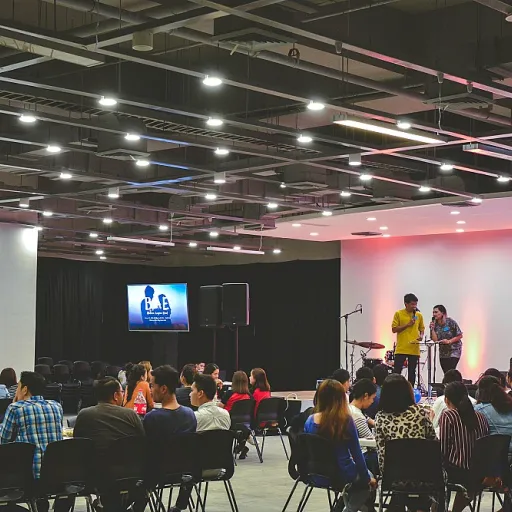
Understanding Generative AI in Workforce Training
Revolutionizing Employee Learning Experiences
Generative AI is transforming the way companies approach employee training, creating adaptive learning experiences tailored to meet individual developmental needs. Organizations are beginning to harness this technology to address skill gaps and improve workforce development, ultimately preparing for the future work environment. This shift is not only reimagining the traditional learning methodologies but also significantly enhancing the organizations' ability to respond to evolving workforce demands.
Tailoring Training Programs with Real-Time Feedback
Through the implementation of generative tools, training programs can now adapt in real-time, providing employees with immediate, targeted feedback. This ability to offer personalized learning paths is central to training development, ensuring that employees develop relevant skills needed for their current roles and future career advancement. By leveraging AI for workforce training, companies are enabling a more responsive and flexible learning environment.
Harnessing Data for Effective Workforce Training
To effectively utilize generative AI in training strategies, it’s essential for companies to leverage data effectively while safeguarding data privacy and security. The analysis of comprehensive data sets allows artificial intelligence to generate insights that can shape more effective employee development programs. Companies focusing on data-driven solutions are positioning themselves at the forefront of workforce training innovation. Employees equipped with the right tools and feedback mechanisms stand to benefit significantly from these tailored development programs.
Adapting to Future Workforce Needs
The integration of AI into employee training isn't just a temporary trend but a strategic move towards future workforce sustainability. As companies evolve, the implication of generative AI in training will likely expand, providing new opportunities for workforce innovation. Organizations must remain adaptable, continuously refining their approach to training and development to meet future demands.
For more insights, explore how empowering your workforce can lead to greater success through our dedicated resource.
Impact on Corporate Culture
The Ripple Effects of AI on Cultural Dynamics
The integration of generative AI in workforce training is more than just a technological upgrade; it is a transformative force reshaping the cultural fabric of companies. As businesses implement AI-driven solutions, they reimagine how employees engage with learning programs and develop new skills.
Encouraging a Learning Culture
Generative AI tools offer tailored learning experiences that can be quickly adapted to individual needs, greatly benefiting employee development. This personalized approach fosters an environment of continuous learning, encouraging employees to proactively close skill gaps. As a result, employees feel more empowered and career-oriented, ready to face future work challenges.
Promoting Collaboration and Innovation
AI's capability to analyze real-time data and provide instant feedback cultivates a culture of innovation and collaboration. Organizations leveraging AI-driven solutions can witness enhanced team dynamics, as employees view AI as a collaborative partner in their workflow. This collaborative atmosphere promotes open communication, allowing for shared knowledge and ideas.
Cultural Shifts and Employee Adaptation
Adopting AI in corporate culture necessitates a shift in mindset both at the management and employee levels. Business leaders must foster an adaptive learning culture where technology is an integral part of everyday work, ensuring that employees are comfortable and confident in utilizing AI tools. Employees need to adapt to new training strategies, developing a flexibility that aligns with rapid technological advancements.
Balancing Data Privacy and Trust
While AI brings numerous benefits, it also raises privacy security concerns within organizations. To maintain a healthy corporate culture, companies must address these issues transparently, ensuring data privacy is upheld and trust is prioritized. A future-oriented perspective in training development includes an emphasis on ethical considerations, thereby reinforcing shared values and responsibility among employees.
Challenges and Considerations
Balancing Benefits with Privacy Concerns
Implementing generative AI in workforce training offers innovative solutions for skill development and learning experiences. However, business leaders must also navigate challenges that arise, particularly in the realm of data privacy. As companies increasingly rely on AI tools and real-time data to enhance employee training, ensuring privacy and security becomes paramount. On the one hand, generative workforce technologies enable adaptive learning, catering to individual employee development needs. They support organizations in bridging skill gaps by providing personalized training programs. Yet, the nature of generative AI relies heavily on accessing user data, which raises concerns over data protection and potential breaches.Maintaining Ethical Use While Driving Progress
A core consideration is the ethical use of employee data in training development programs. Companies must establish robust privacy strategies to protect sensitive information, encouraging transparency and building trust with employees. Moreover, it is crucial for organizations to stay informed about privacy regulations and ensure compliance with relevant laws to safeguard workforce data. Employee feedback plays a vital role in refining AI-driven training strategies. Gathering insights from staff on the effectiveness of these learning tools aids the continuous improvement of training programs while respecting privacy boundaries.Navigating Technological and Cultural Shifts
The transition towards AI-driven workforce development inevitably affects corporate culture. The interplay of technology and people requires companies to carefully manage this cultural shift, ensuring that generative tools promote inclusivity and do not alienate any employee group. As illustrated in enhancing workplace dynamics through employee experience consulting, fostering a supportive environment is critical for the success of AI integration. By addressing these challenges, organizations can effectively harness the potential of generative AI in workforce training while upholding ethical standards and respecting employee privacy.Case Studies of Successful Implementation
Examining Real-World Applications
The practical implementation of generative AI in workforce training has sparked interest across various industries. Many companies are turning towards this advanced technology to enhance learning experiences and bridge skill gaps among employees. Through the lens of real-world applications, we can observe how organizations have successfully integrated generative AI into their training strategies to enrich corporate culture and boost workforce development. Consider the example of technology firms, which are forefront pioneers in adopting generative AI for employee training. These organizations are leveraging AI-driven solutions to create adaptive learning programs tailored to individual learning styles and career aspirations. By doing so, they can offer targeted development programs that not only improve employee skills but also address specific business needs. In the financial sector, companies are utilizing generative AI to streamline training programs by efficiently analyzing vast amounts of data. This approach helps in identifying critical skill gaps and providing feedback in real time, ensuring that employees are well-equipped to handle future work challenges. Additionally, AI tools can deliver personalized learning content that aligns with the evolving demands of the industry. Retail organizations have embraced generative technologies by developing interactive training modules that engage employees and facilitate hands-on learning. These immersive learning experiences foster a more robust understanding of new tools and processes, promoting effective employee development. Moreover, healthcare companies are employing AI-powered training strategies to enhance the capabilities of their workforce. By simulating realistic scenarios, generative AI allows healthcare professionals to practice decision-making and refine their skills in a controlled environment, ultimately contributing to improved patient care. These case studies underline the transformative impact of generative AI in shaping employee training. As organizations continue to experiment and refine their approaches, business leaders must remain mindful of integrating ethical considerations and data privacy concerns. By doing so, they can ensure that the benefits of these advanced technologies are fully realized, fostering a culture of continuous learning and development.Future Trends in AI-Driven Training
Envisioning Workforce Training with AI
In the realm of training development, generative AI is unlocking new possibilities, streamlining the learning experiences for employees. Companies are utilizing AI technology to tailor training programs that adapt in real time, addressing the specific needs of the workforce and individual skill gaps. As we look to the future, the integration of AI into training strategies is expected to reshape how organizations invest in employee development.Adaptive Learning and Personalization
Generative AI tools have the potential to facilitate personalized learning experiences by processing vast amounts of data to identify unique learning patterns among employees. This adaptive learning approach ensures that employees receive the correct information at the right time, enhancing development programs and allowing people to progress their skills effectively.Incorporating AI for Feedback and Improvement
A significant aspect of future AI-driven training is the continuous feedback loop enabled by artificial intelligence. These solutions offer detailed insights into employee performance, allowing organizations to refine their training programs. By evaluating feedback in real time, businesses can implement adaptive solutions that meet workforce demands and align with corporate culture.Closing Skill Gaps with Innovative Tools
Generative AI is also promising a future less burdened by skill gaps. By leveraging AI technology, business leaders can design programs that target specific skills needed within their workforce, helping employees advance in their careers. Continuous iterations of these training strategies will empower employees to meet the demands of future work environments. As organizations and startups continue to embrace AI for workforce training, the overarching transformation of career development is clear. With proactive use of AI-driven solutions, companies can foster a culture of innovation, skill enhancement, and adaptive learning—ultimately preparing their workforce for the challenges and opportunities of tomorrow.Practical Steps for Startups
Implementing Practical Generative AI Strategies for Startups
For startups aiming to integrate generative AI into their workforce training, several practical steps can be pivotal in ensuring seamless implementation and maximum benefit.- Identify Skill Gaps: Conduct an analysis of the current skills within your workforce and identify any gaps that generative AI can help address. Understanding these gaps allows for the effective tailoring of training programs to meet specific needs.
- Incorporate Real-Time Feedback: Utilize generative tools to provide employees with real-time feedback. This practice not only enhances the learning experiences but also boosts confidence and encourages continuous development.
- Ensure Data Privacy and Security: With the integration of technology into training programs, protecting employee data is paramount. Developing robust privacy security measures ensures employee trust and compliance with regulations.
- Create Adaptive Learning Systems: Implement systems that adapt to the learning pace and style of each employee. Such systems promote personalized career development and better address individual learning needs, ultimately leading to a more effective workforce.
- Feedback Loops for Continuous Improvement: Establish feedback loops with employees to continuously refine training strategies and solutions. Collecting insights from users helps evolve the programs and enhances their relevance and efficacy over time.
- Leverage Case Studies: Draw insights and lessons from companies that have successfully integrated generative AI into their training processes. Understanding these experiences aids in navigating potential challenges and implementing best practices.













